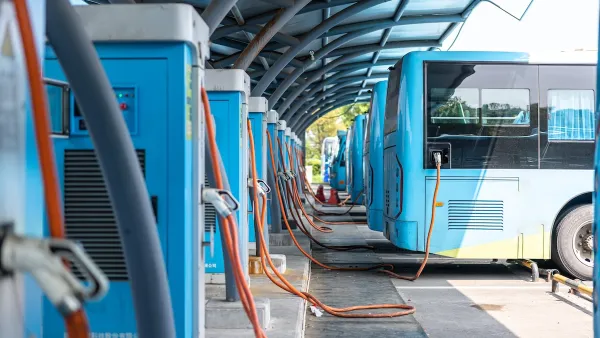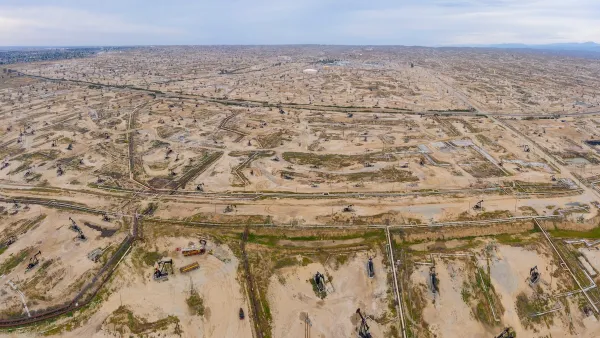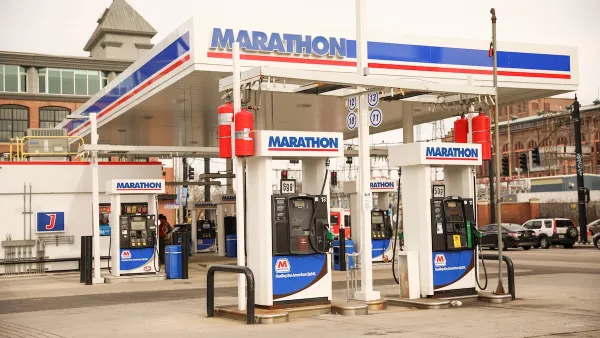The coal industry, electric utilities and manufacturers are in line to get trillions of dollars in federal funding to reduce carbon emissions, leaving virtually no money for smart growth and transit solutions to climate change.
"Some of planners' favorite ways of combating climate change are facing major obstacles, including "smart growth." In Washington, DC, the coal companies and utilities are doing a better job of lobbying than are the proponents of smart growth and transportation alternatives, reports Bill Fulton. Planning and transit advocates -- who want to reduce reliance on the automobile and therefore cut tailpipe emissions -- have simply not been involved in the climate change bill that would direct up to $4.5 trillion over 50 years toward reducing greenhouse gas emissions."
"Meanwhile, in California, a coalition of environmental justice advocates has announced its firm opposition to a cap and trade system that many people see as essential to the state meeting its greenhouse gas emissions reduction goals. The EJ advocates have important allies in their fight against what they contend is business as usual at the expense of poor people."
Thanks to Paul Shigley
FULL STORY: Big Coal Dominates While Smart Growthers Snooze

National Parks Layoffs Will Cause Communities to Lose Billions
Thousands of essential park workers were laid off this week, just before the busy spring break season.

Retro-silient?: America’s First “Eco-burb,” The Woodlands Turns 50
A master-planned community north of Houston offers lessons on green infrastructure and resilient design, but falls short of its founder’s lofty affordability and walkability goals.

Delivering for America Plan Will Downgrade Mail Service in at Least 49.5 Percent of Zip Codes
Republican and Democrat lawmakers criticize the plan for its disproportionate negative impact on rural communities.

Test News Post 1
This is a summary

Test News Headline 46
Test for the image on the front page.

Balancing Bombs and Butterflies: How the National Guard Protects a Rare Species
The National Guard at Fort Indiantown Gap uses GIS technology and land management strategies to balance military training with conservation efforts, ensuring the survival of the rare eastern regal fritillary butterfly.
Urban Design for Planners 1: Software Tools
This six-course series explores essential urban design concepts using open source software and equips planners with the tools they need to participate fully in the urban design process.
Planning for Universal Design
Learn the tools for implementing Universal Design in planning regulations.
EMC Planning Group, Inc.
Planetizen
Planetizen
Mpact (formerly Rail~Volution)
Great Falls Development Authority, Inc.
HUDs Office of Policy Development and Research
NYU Wagner Graduate School of Public Service





























